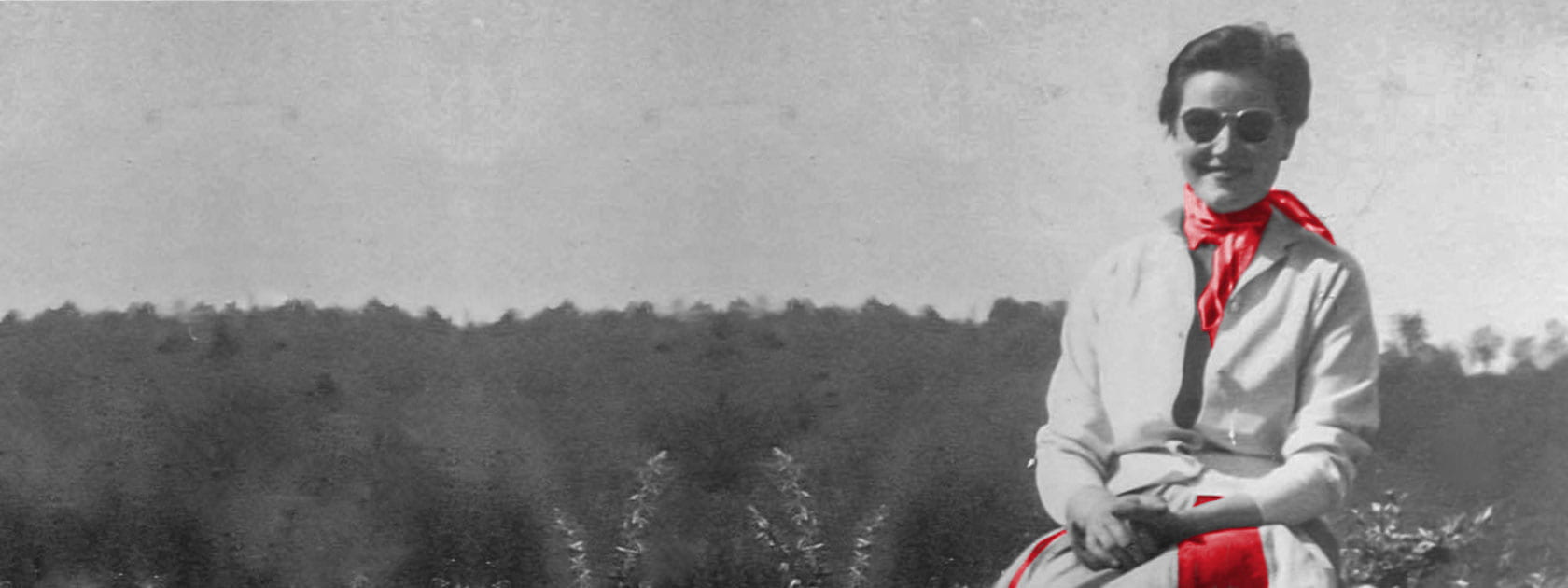Date
June 23, 2011
Maker
Columbus Centre
Accession#
ICEA2011.0051.0001
Interview With Vladimira Dalle Vedove Tontini
Vladimira Dalle Vedove Tontini’s father was born in Friuli, Italy and her mother was born in Pesaro, Italy. Her parents met in Sudbury, Ontario, and moved to Montreal to settle where they had their only child, Vladimira. Her father, Angelo Delle Vedove, was arrested on her 10th birthday, June 10, 1940. The Royal Canadian Mounted Police (RCMP) would not allow him to stay for her birthday cake when her mother made the request. Vladimira, along with her mother and grandmother, visited her father Angelo at Camp Petawawa about a year after he was interned. Vladimira describes the experience of seeing her father in the camp and also talks about the other interned men in the camp. Her mother, grandmother, and step-grandfather were all classified as enemy aliens and forced to report monthly, despite the fact that they all had their citizenship papers. Her father’s internment was especially difficult for her mother, as the family had started to build a house and only the excavation had been complete. Her mother was forced to work three jobs in order to pay the rent at their current home while completing the basic construction of their new home. Vladmira explains that she did not face too much discrimination herself, but that she noticed subtle things at school. She explain that her grandmother faced discrimination in some French-Canadian shops; however she would stand up for her while speaking French or English.
In this opening clip Vladimira Tontini speaks about her parents, their migration and meeting in Canada and the family’s early life in Montreal, QC.
Vladimira Tontini discusses her schooling and the friends she made in her Montreal neighbourhood.
Vladimira Tontini describes life growing up in Montreal during the Depression.
In this clip Vladimira Tontini describes her father’s arrest on June 10, 1940.
Vladimira Tontini describes how she was treated at school in the days after her father’s arrest. She mentions that she did not talk about her father’s internment with any of her friends and that to this day she still does not talk about the internment.
Vladimira Tontini speaks about attending the Casa d’Italia in Montreal with her family and also shows a pin her father had from the Casa. She also talks about the church she attended with her grandmother.
In this clip Vladimira Tontini talks about identifying with both her Canadian and Italian heritage. She also mentions that Italians in Montreal did face some discrimination from the French but that she did not pay any attention to it.
Vladimira Tontini discusses how her family survived at home during her father’s internment.
Vladimira Tontini speaks about corresponding with her father through letters while he was interned. She also describes some of his daily activities in the camp.
Vladimira Tontini further elaborates on how her mother managed their home and finances while her father was interned.
Vladimira Tontini speaks about the work her mother did to make ends meet while her father was interned.
In this clip Vladimira Tontini talks about visiting her father at the internment camp. She describes the visit and the layout of the internment camp.
Vladimira Tontini recalls her father’s release from the internment camp and mentions that her father rarely spoke about his camp experiences with her upon his return home.
Vladimira Tontini talks about her family’s enemy alien designation and having to report to the authorities.
In this clip Vladimira Tontini describes her relationship with her father upon his return home.
Vladimira Tontini discusses where her father found employment after his release.
In this clip Vladimira Tontini talks about how her father adjusted to life at home after his internment experience.
Vladimira Tontini describes the discrimination her grandmother faced for being Italian.
Vladimira Tontini recalls that her father would only talk about his internment experiences when he was with fellow friends who had also been interned.
Vladimira Tontini mentions that a lot of the internees were fearful as to what would happen to their families in their absence.
Vladimira Tontini talks about how the internment of her father impacted on the rest of her life.
In this clip Vladimira Tontini describes what she knows about life in the internment camp.
Vladimira Tontini explains the reason why she believes her father was interned and how her family reacted to the news of his internment.
Vladimira Tontini mentions that she did not face discrimination during the war years and attributes this to her personality.
In this clip Vladimira Tontini talks about how life at home after her father’s return from the internment camp.
Vladimira Tontini discusses compensation and the importance of remembering the internment period.
Vladimira Tontini shares her memories of how the role of women changed while the men were away at the internment camps.
Vladimira Tontini recalls one incident at school where she did not receive 100% on a test that she attributes to discrimination.
Vladimira Tontini recalls watching Italian processions and attending events at the Casa d’Italia as a small child.
Vladimira Tontini discusses how her mother had to petition to visit her husband at the internment camp and talks about issues surrounding his release. She also talks about suspected informants in the Italian Canadian community.
In this last clip Vladimira Tontini discusses her father’s relationship with Adrien Arcand and Guido Nincheri.



